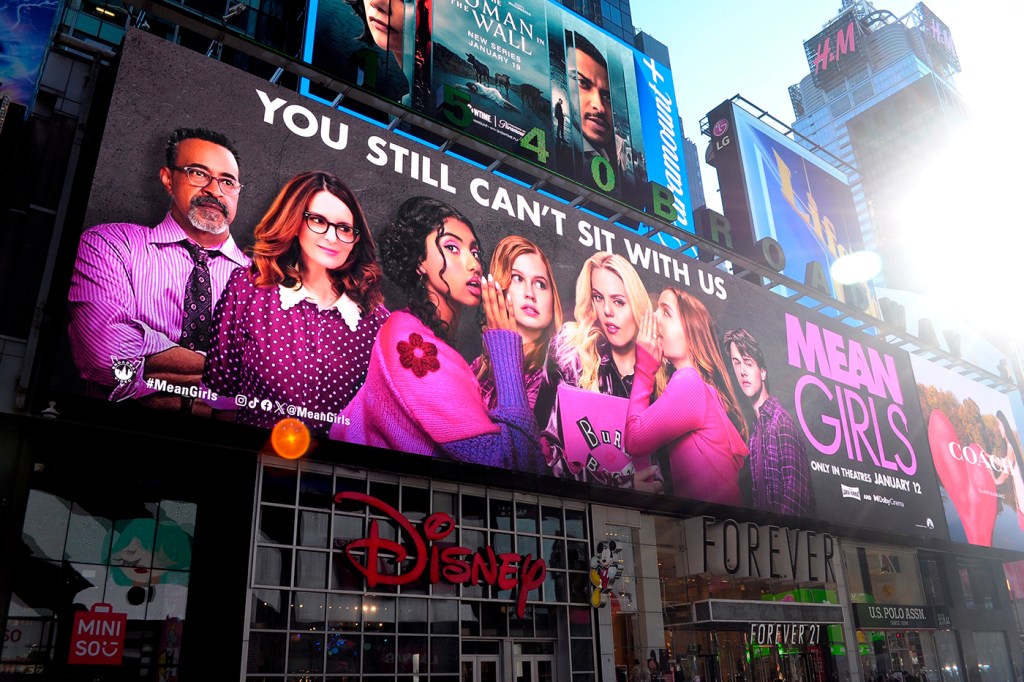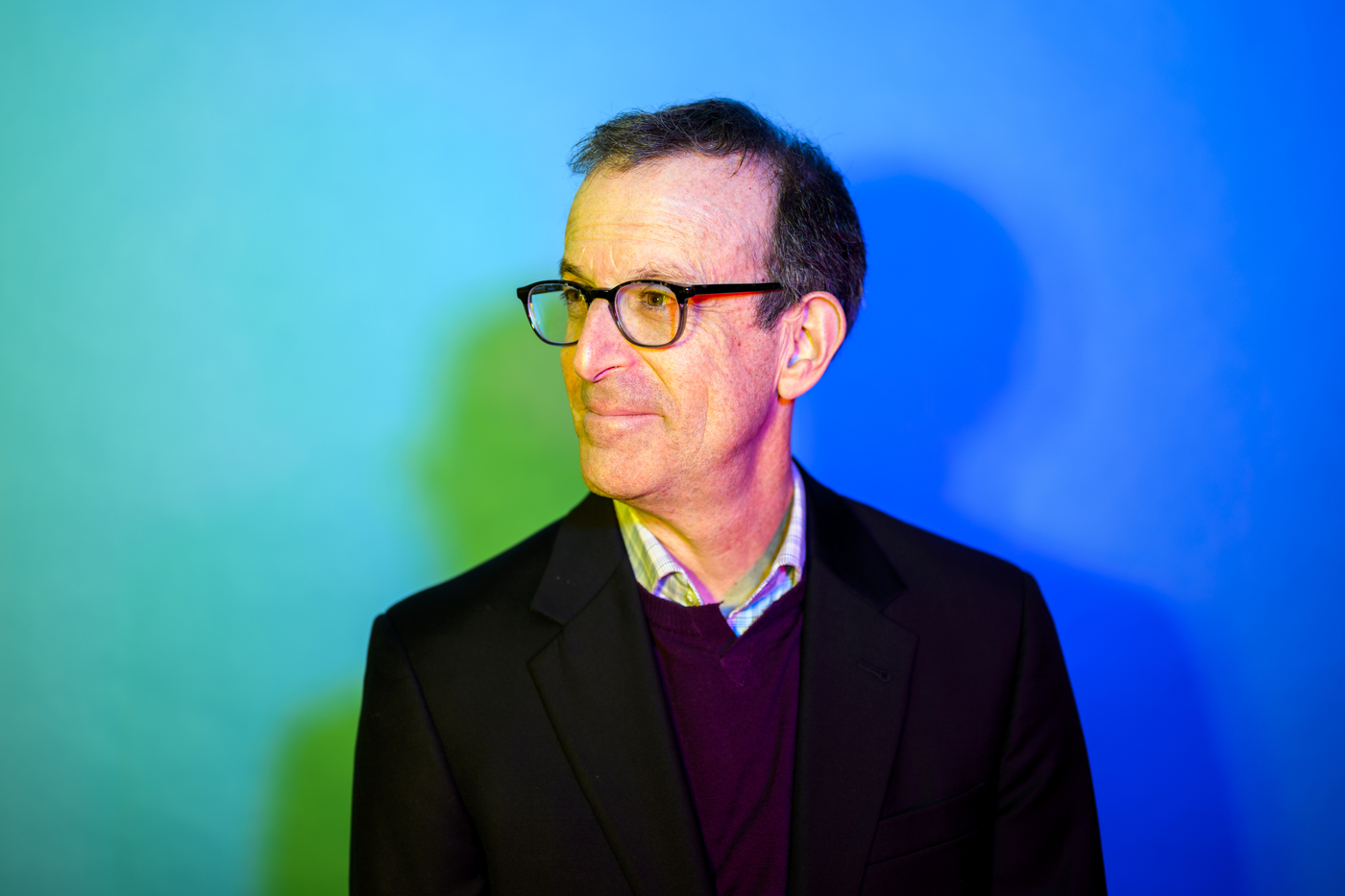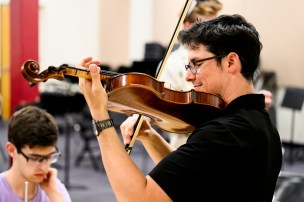Published on
Why do people hate movie musicals?
Studio executives purposely downplayed the fact that the new “Mean Girls” is actually the movie version of a stage musical after poor feedback from audiences on movie musicals.

Musicals can be, in a word, divisive. Some people love them, some people hate them, and some people won’t watch them if they’re on screen. The movie musical itself can be such a turnoff that Paramount purposely downplayed the fact that the new “Mean Girls” movie is a musical, much to the surprise of some audiences.
Studios took the same marketing approach with “Wonka” and “The Color Purple,” both new musical films. These executives were likely scared off by the box office performance of other recent movie musicals like “West Side Story” and “In the Heights,” as BoxOffice Pro chief analyst Shawn Robbins told The Hollywood Reporter.
These numbers are interesting when you consider the stage productions of these shows were better received. Why is it that shows that perform well on Broadway don’t always translate well to screen? Some of it has to do with the way music is presented in musicals, according to Allen Feinstein, teaching professor of music at Northeastern University.
“Everyone who goes to the theater accepts that it’s artificial,” Feinstein said. “You’re going into a room with other people who are presenting thoughts, ideas, stories and characters. If you add musical theater elements and characters start to sing, it’s even more artificial. Most movies take advantage of all the realism you can depict with the tools of movie making. You’re not in the same room with people. They’re in a setting that is more organic to those characters. It’s depicted realistically much of the time. If you’re going to introduce the truly artificial conceit of characters breaking into song in a realistic setting (in a movie), there are challenges to making that work artistically. It’s forcing something super artificial into a setting where people are used to seeing very true representations.”

That is the struggle for Jeff Hirbour whenever he tries to watch musicals. The TV producer and Cambridge resident has a degree in film theory and follows the Oscars.
“Musicals don’t really work for me,” he said. “I’ve had good experiences in person when I see musicals, but for some reason, wherever I watch them on TV, it doesn’t quite work for me.”
Some of the only musical media Hirbour enjoyed are ones in which the music makes sense in the context of the plot — for example, he loved the episode of “Buffy the Vampire Slayer” in which the characters were possessed by a demon that made everyone sing.
“That was the first time it worked for me,” Hirbour said. “I realized that I only liked (musicals) if there’s a logical reason why people are breaking into song which makes no sense, right? Because it’s a demon so it’s not even realistic. But if you give me a reason why people would start singing, I could get behind it. But it’s just people day-to-day singing for no reason, I get very confused as to why that’s happening.”
This might be the reason why some theatergoers — according to TikTok — are walking out of showings when “Mean Girls” protagonist Cady Heron starts singing in her high school math classroom. Unlike in the stage musical of “Mean Girls” (which ran on Broadway from 2018 to 2020), it likely yanked viewers out of the realism of the movie.
Feinstein, who’s composed and conducted music for film and stage, said most music used in non-musical films is either scores that the audience can hear but the characters can’t or music that makes sense in the context of a film (like a character listening to a song on the radio or at a concert). But most musicals feature music that is sung by the characters themselves without the knowledge they’re singing.
“That’s how they express themselves is through song (in a musical),” Feinstein said. “But it’s not like characters aren’t saying to the audience or to the other characters ‘OK, I’m going to sing a song and tell you how I feel.’ Their emotion is so intense that they break into song and that’s part of the artifice. Film scoring is totally different (with) the relationship between the music and the characters and the awareness of the music happening.”
Editor’s Picks

What do corporations need to ethically implement AI? Turns out, a philosopher

Business leaders should use human-centered approaches to AI adoption, Northeastern dean says

Expert advice: Coping strategies for navigating the 24-hour news cycle

Google’s brand ads are a “sham” but companies have to buy them anyway, new report finds

With the help of Northeastern, Tennessee Valley Authority experiments with a new forecast model to better predict extreme rainfalls
Viewers of the new “Mean Girls” also noted the vocal differences between the film’s performers and those on the original Broadway soundtrack, particularly from the actor cast as Cady Heron who has experience in film, but not musicals.
“There’s a trade-off,” Feinstein said. “I understand from a marketing point of view that producers make decisions based on a combination of factors, both actors’ talent and their marketability as stars. If the choice is we’ll get more views and tickets sold with a big star and we’ll compromise a bit on their vocal skill, that’s the choice we’re making and I think people are very well aware of those issues.”
The exception to movie musicals performing poorly is often movies with music baked in like the 2018 version of “A Star is Born,” which made $431 million at the box office and earned several Oscar nominations. It even won for best original song. The difference here, Feinstein said, is the songs made sense in the context of the film following two musicians falling in love. The characters knew they were singing and did so as part of their roles as performers.
In contrast, “West Side Story” made only $76 million at the box office when it needed $300 million to break even. “In the Heights” made about $43 million after $55 million went into the production.
Both films came out in 2021, which is when the movie musical really started to take a dip. But there was a time when they were the main genre offered at the box office, from “Singin’ in the Rain,” which is lauded as one of the best films ever made, to “Fiddler on the Roof,” which won the recently deceased Norman Jewison an Oscar nomination.
Feinstein attributes this to the evolution of entertainment options over the decades.
“Before the 1950s, entertainment was radio, movies, and live performances,” Feinstein said. “American theater arts were much more central. Musical theater was an American art form that was evolving and finding its own. In the 1930s, 1940s, 1950s, the pop music at that time significantly came out of musical theater.”
But that doesn’t mean movie musicals can’t and haven’t found their audience, even if they’re not always a sure success for producers. Tim Miller, a longtime film critic who’s the co-president of the Boston Society of Film Critics, said musicals usually leave him “cold,” but he found he actually enjoyed the latest “Mean Girls.”
“I really, really, really liked ‘Mean Girls.’ I thought the music was good. I thought Reneé Rapp (who plays Regina George) was hilarious,” Miller said. “I think the music and the sort of production number, razzle dazzle stuff really worked because it was in the service of the story and it really captured the mood…As a critic, I have to be a little bit careful. Just because a movie has production numbers, I can’t say it’s a bad movie.”
Erin Kayata is a Northeastern Global News reporter. Email her at e.kayata@northeastern.edu. Follow her on X/Twitter @erin_kayata.





